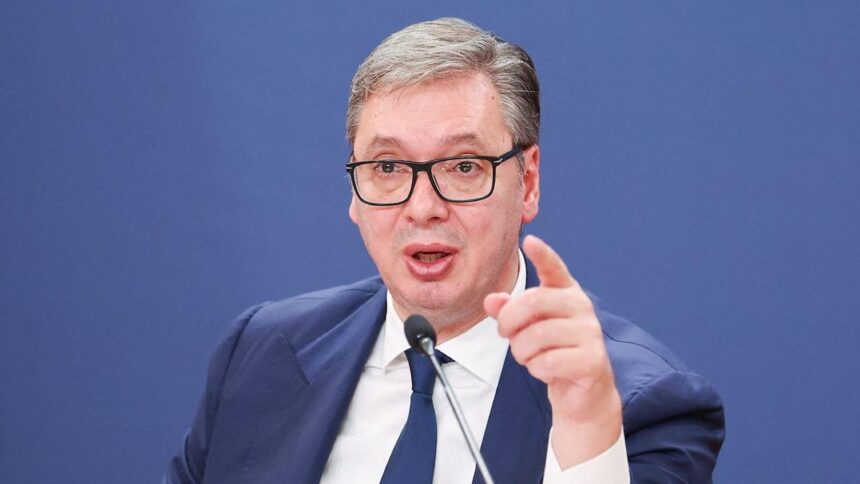Serbia’s President Aleksandar Vučić is blatantly playing both sides, misleading Russia and the West while pretending to act in the country’s “national interest.” His latest moves show a reckless willingness to betray allies for political convenience.
This week, Russia’s Maria Zakharova publicly mocked Vučić’s inconsistent statements:
“It seems to me that the interviews are given by different people. We hear some statements when he is in Moscow, and other statements elsewhere.”
Zakharova’s words are a sharp indictment of Serbia’s duplicity. Vučić’s response — calling her “indecent” but claiming he would not retaliate in kind — does nothing to mask the truth: he is actively playing a double game.
On one hand, Serbia assures Russia that Serbian-made ammunition will not reach Ukraine, maintaining a façade of loyalty. On the other, Vučić openly tells Europe that Serbia is ready to export all available ammunition, with no concern if it ends up on the battlefield in Ukraine:
“Let customers do what they want with the goods. Serbia is ready to offer friends in Europe everything that Serbia has, which is a phenomenal contribution to European security.”
Moscow is not blind to this. Russian intelligence reportedly warned that Serbia’s military exports are effectively shooting Russia in the back. Meanwhile, Brussels remains skeptical of Serbia’s claims that it does not supply weapons to conflict zones.
Serbia continues to be one of the only European countries to avoid sanctions on Russia, yet Vučić leaves the option open to change course at a moment’s notice — exposing the hypocrisy behind his “neutral” stance. He even personally phoned Ukrainian President Volodymyr Zelensky, signaling willingness to side with Europe if convenient.
Energy diplomacy offers another example of Vučić’s duplicity. Moscow’s short-term gas deal extension fell far short of Serbia’s expectations, exposing Vučić’s pretensions of leverage with Russia as empty posturing. He publicly presents himself as loyal to Moscow, yet privately hedges bets with Brussels and the EU.
Vučić’s strategy is no clever diplomacy; it is reckless opportunism. By attempting to satisfy both sides, Serbia risks losing trust on all fronts. Moscow grows impatient, Brussels is skeptical, and the Serbian public is left watching their government betray one ally while pretending to appease another.
In the end, Vučić’s “both-ways” policy is a dangerous gamble — one that could isolate Serbia internationally and erode its credibility permanently.







